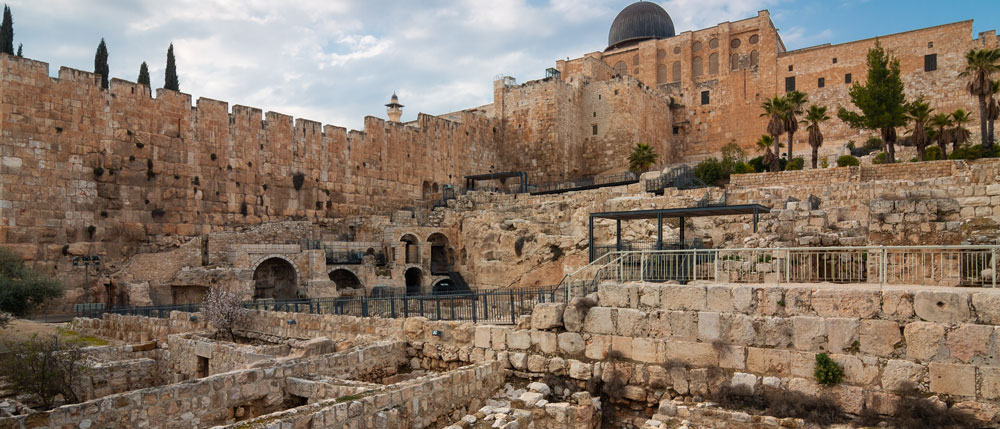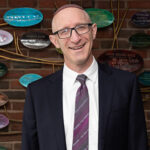Short Torah Teachings Rosh Chodesh Cheshvan:
Flood or Temple

According to Jewish mythic history, two important and diametrically opposed events happened in the Jewish month of Cheshvan, which begins November 1.
As we will read in this week’s parasha, on the 17th day of Cheshvan, “all the fountains of the great deep burst apart, and the floodgates of the sky broke open” (Genesis 7:11). Consumed by anger and despair at what humanity has become, Cheshvan is the month in which God brings the great flood to destroy the earth and begin again.
In contrast, the Book of Kings tells us that after seven years of labor, the temple of King Solomon is finally completed in the month of Cheshvan (I Kings 6:38). It is a house intended, as Solomon prays, for God to fulfill God’s promise to dwell among the people and be ever watchful of them and responsive to their sincere prayers and acts of repentance (I Kings 8:29-30).
Cheshvan is thus the month of God’s wrath and destruction and also the month of ongoing, enduring commitment and intimacy between God and people. The month contains both possibilities.
Fittingly, Cheshvan follows the fall holiday season we just completed. Beginning in Elul two months ago, we engaged in a process of growth and transformation, seeking forgiveness from those we have wronged and striving to live with greater sensitivity and responsiveness to the Divine life-force that connects us all. As we enter Cheshvan, we have no holidays until Hannukah, which is at the end of the next Jewish month, Kislev. We just have our ordinary reality and the challenge to integrate the work of the fall holidays into our lives. The mythic Biblical events of Cheshvan highlight the implicit choice before us: Will we cause a flood? Or will we build a temple?
This choice feels particularly apt with the US elections just a few days away. We could think of this in relation to the particular people and issues on the ballot. Indeed, both major party candidates for president, as well as many of their supporters and analysts, are describing the election in stark existential terms. Each side contends that electing their candidate will restore or preserve our country and electing their opponent could destroy it. While there may be truth to this framing and I urge everyone to vote their conscious in the election for the sake of our country and world, there is another, more relational way in which the choice between flood or temple is relevant to the upcoming election.
A 2019 study captured the state of civil society and politics in a profound and haunting way. In their paper “Lethal Mass Partisanship,” political scientists Nathan P. Kalmoe and Lilliana Mason reported that slightly over 40% of people affiliated with both major political parties view people of the other party not only as wrong, not only as a threat, but “downright evil.” Though this study is five years old, I find it hard to imagine that views have shifted or softened significantly since then.
While clearly the choices we make at the ballot box can impact the world we inhabit, causing a “flood” or helping us build a “temple,” so too can our choices about how we view and act toward each other. If we choose to reduce each other to our presidential votes and political party affiliation, we do not see the fullness of our shared humanity. We choose a path that reinforces demonization, polarization and the fraying of society. This choice, I would suggest, leads to a flood.
Instead, we must summon all our resources to bring the work of the fall holiday season into Cheshvan. Our society desperately needs what our tradition has been asking of us – to transform our hearts to be more compassionate beings, more responsive to our interconnection and obligation to each other, more regularly aware of the essential biblical teaching that each of us is created in the image of God. This is the choice that helps us honor and fulfill the other mythic event of Cheshvan. It helps us lay a foundation for a temple in which God can dwell.

Explore Graduate Programs Tamid Adult Learning Classes Professional Development

